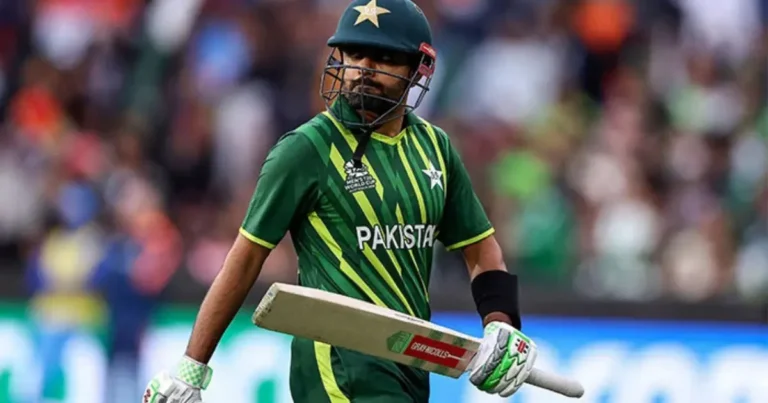
The term world cup stories evokes rich drama, global passion, and unforgettable moments on the football pitch. At the heart of sports culture, the FIFA World Cup has delivered countless tales of triumph, despair, resilience, and unity. In this article, we explore how the world cup has shaped lives, cultures, and communities—all while inspiring fans around the world to believe in the power of sport.
world cup stories: the origins of the tournament
The story of the world cup begins with a vision: to bring nations together under a shared love of football. Organized by FIFA for the first time in 1930, the tournament featured 13 teams in Uruguay. From that modest start, the event grew into the most-watched single sporting competition in the world, a stage where legendary players, underdog teams and historic upsets wrote their names into history.
The early world cup stories remind us how sport can transcend borders and assumptions—and that humble beginnings can lead to momentous global impact.
world cup stories: unforgettable triumphs and moments
When we talk about world cup stories, some moments instantly shine: nations breaking through, individuals rising beyond expectation, and matches that became folklore.
One iconic example: the 1954 final where West Germany national football team beat the heavily-favoured Hungary national football team 3-2 in Bern. The upset carried deeper meaning in post-war Europe.
Another: the 2022 tournament in Qatar where Argentina national football team clinched their third title in a dramatic final against France national football team—a story of redemption, legacy and global celebration.
These stories deepen the appeal of the world cup—they show that victory is not just about skill, but about character, context and collective belief.
world cup stories: the underdogs and the surprise packages
Perhaps the most enduring of world cup stories are those of the underdog: teams expected to fade quietly but who instead shine brightly.
Consider the teams that qualified despite long odds or chains of loss, who grabbed a moment and held onto it. These narratives carry hope that barriers can be broken, and that every nation—even those outside the traditional powerhouses—can write their chapter.
For fans, these surprise stories inject excitement and unpredictability into the tournament. They reinforce that the world cup is more than just a routine; it is a storybook of possibility.
world cup stories: cultural impact beyond the pitch
The world cup’s significance isn’t confined to the field. These stories ripple into culture, society, identity and economy. A nation’s success can uplift morale, unify disparate communities, galvanize youth programs, and ripple through media headlines across continents.
For example: host countries often experience infrastructure improvements, surges in tourist interest, and a burst of national pride. The tournament becomes part of the cultural narrative of a generation.
Thus, when we read about world cup stories, we’re not just reading sport recaps—we’re witnessing cultural chapters in the making.
world cup stories: modern evolution and expansion
In recent years the world cup stories have added new layers. The competition is evolving: expanding formats, new hosts, global inclusion.
Starting with the 2026 edition, the tournament will include 48 teams—expanding the participation pool and raising the stakes for new stories to emerge.
Looking ahead to 2030, the tournament’s centenary edition is already being positioned as a major global marker.
These developments promise fresh stories: from more nations participating to new formats and fresh host cultures. The essence remains the same—hope, competition, and inspiration.
world cup stories: how fans live the moments
Fans don’t just witness world cup stories—they live them. The roar of a crowd, the late-night match in a different time zone, the national flag unfurled in the stands. These experiences become personal.
Here are ways fans engage:
-
Watching the tournament with friends or strangers, making friends over shared loyalty.
-
Posting social-media reactions, following hashtags and trending topics.
-
Celebrating community events when underdog teams perform beyond expectations.
-
Memorising iconic goals or moments that become part of fan lore.
In this way, the world cup becomes more than a championship—it becomes a shared global event knitted into personal memories.
world cup stories: what we learn from them
What lessons do these powerful stories give us? Many.
-
Persistence matters: Teams that keep fighting often create the biggest legacies.
-
Identity matters: Winning isn’t just about the trophy—it’s about what the trophy means for a nation.
-
Inclusion transforms: Broadening participation gives room for fresh narratives and voices.
-
Unity in diversity: The world cup brings disparate nations together under one global passion.
When we reflect on world cup stories, we see that sport can teach empathy, resilience and hope.
world cup stories: technology and data shaping the narrative
In the modern era, worldcup stories are not only about moments on the pitch—they’re about data, analytics and global reach.
Advanced analytics now explore player performance, team tactics and probability of outcomes. For example, researchers have used machine-learning frameworks to forecast match winners by integrating individual player attributes and team dynamics.
Meanwhile, broadcasting technology enables viewers around the world to consume the event in high-definition, on mobile devices, and via social platforms—adding new layers to how stories spread.
These tools amplify the worldcup imaginations: fans can analyse, debate and visualise the event like never before.
world cup stories: iconic figures who defined the tournaments
Every major worldcup story features a hero—or a team—that captured the world’s attention.
-
Legends like Pelé (Brazil), Maradona (Argentina) and their unforgettable goals.
-
More recent icons like Mbappé (France) or Messi (Argentina) who carried dreams of nations.
-
Teams like Brazil, Italy, Germany and their legacy of excellence.
These names transcend sports—they become cultural references. Their stories feed the mythos of the worldcup and inspire future generations.
world cup stories: crises and controversies too
It’s not all glamour. Many world cup stories include controversies: hosting debates, human-rights issues, corruption allegations, match-fixing concerns. These episodes remind us that sport intersects with politics, business and ethics.
For example, the awarding of tournaments and infrastructure burdens in host nations often stir debate. These stories act as cautionary tales—reminding fans that the stage is global and multifaceted.
world cup stories: the next generation of moments
As we look ahead, the next chapters in worldcup stories promise even more.
With more teams participating, more games played, and more global attention, we can expect:
-
New nations reaching advanced stages and surprising the world.
-
Broader diversity in hosts, players and styles of play.
-
Evolving fan experiences—virtual reality, global streaming, interactive platforms.
In this sense, every fan can look forward to witnessing new tales of triumph, upset and inspiration. The next story might even begin in your country, your city, your community.
world cup stories: how you can engage as a fan
If you want to step into the worldcup narrative and feel part of the story, here are practical tips:
-
Follow the qualifiers and lesser-known teams—they often have the richest stories.
-
Engage with different fan groups and forums across cultures—hear how the world views the tournament.
-
Keep track of historic moments and records—they build context for current matches.
-
Use social media wisely—share your voice, but listen to others.
-
Reflect on what the worldcup means beyond football—the cultural, societal and human dimensions.
By doing so, you become not just a spectator but a participant in the worldcup stories.
world cup stories: concluding reflections
The worldcup is far more than a tournament. It is a global narrative of hope, challenge, community and identity. The stories that emerge from it inspire in many ways: they show that victory can come from underdogs, that greatness can transcend borders, that sport can elevate human spirit.
For every fan, each edition of the worldcup writes new pages. Whether you cheer the favourites or root for the outsiders, you are part of a collective story that spans continents and generations.






